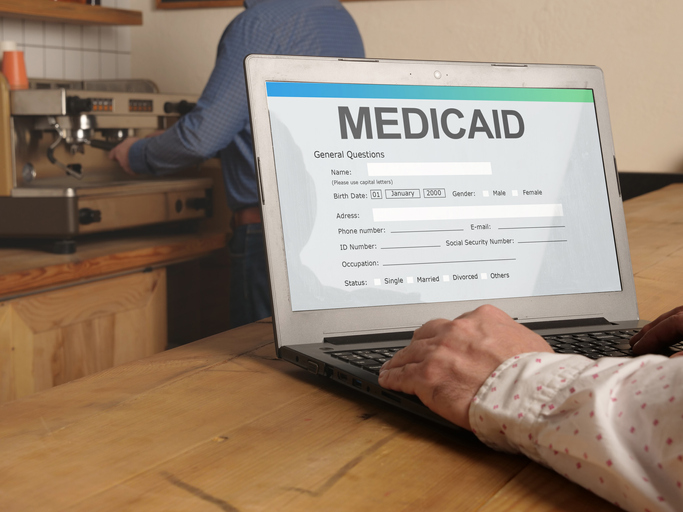Skyrocketing Medicaid costs were already threatening to overpower every other priority in state budgets before the pandemic. As COVID-19 spread, national Medicaid enrollment ballooned from 23 million people to 95 million as eligibility requirements were relaxed.
States were given enhanced funding from the federal government to load more people onto Medicaid while simultaneously being unable to disenroll anyone who didn’t make the request themselves.
Now that the COVID-19 emergency is over, states must unwind the Medicaid COVID-19 expansion and transition nonqualifying enrollees back to private health insurance and taxpayer-supported exchanges. The Urban Institute predicts as many as 15 million Americans will “lose” insurance as pandemic-era emergency declarations expire and states can resume disenrolling people who do not qualify for Medicaid.
However, the Urban Institute acknowledges that “almost all” are eligible for state-supported exchanges, employer-sponsored health insurance, or Medicaid itself through redetermination. As COVID-19 relief funds dry up, and hospitals scramble to balance their books, those who no longer qualify for Medicaid need to transition to private insurance.
Medicaid Explosion
To provide care to those who truly need it and keep health care insurance premiums more affordable to businesses and families who pay for private health insurance, states need to stop paying for people who do not qualify for social service programs, whether it be because they make too much money, live in another state, or are dead.
In January 2023, more than 93 million Americans were enrolled in Medicaid. According to Centers for Medicare and Medicaid Services (CMS) data, $80.6 billion was improperly spent in 2022, and a staggering $98 billion was misspent in 2021. The vast majority of these improper payments (66.4 percent for Medicaid) went to payments deemed improper because of eligibility issues.
Texas Takes Action
In Texas, state Sen. Lois Kolkhorst (R-Brenham) introduced legislation to stop some of the improper payments flowing through pandemic-related social service programs. SB 745, which makes simple changes to expand the investigations of the Office of the Attorney General (OAG), was signed into law by Gov. Greg Abbott on May 29.
The OAG investigates dozens of these cases of fraud each year. Since 2000, the OAG has recovered more than $2.5 billion for taxpayers under the Texas Medicaid Fraud Prevention Act. The OAG can now expand its scope to include the increased spending attached to associated social services, such as the Children’s Health Insurance Program and the Healthy Texas Women program, along with many others administered by the Department of State Health Services.
Texas Medicaid enrollment grew from 3.99 million in April 2020 to 5.12 million in December 2021. Much of that growth was due to the presumption of continuous eligibility. Under SB 745, enrollees will be checked for eligibility and disenrolled if they no longer qualify. State officials aim to minimize disruption by giving priority to those who are most likely to continue benefits. For example, a mother who became eligible when she became pregnant two years ago is more likely to transfer off Medicaid than her fully disabled neighbor and so will have eligibility redetermined first.
Texas has increased staff for the extra services required to unwind pandemic-era eligibility standards. Since April 2022, the Texas Health and Human Services Commission has added 1,000 eligibility staff to its workforce.
Recession-Ready
Other states are using vendors to help locate vulnerable enrollees and manage their redetermination while recapturing costs by eliminating waste, fraud, and abuse.
In Iowa, SF 494, signed into law by Gov. Kim Reynolds on June 1, tackles redetermination with the help of contracted consultants. States should continue to find meaningful ways to communicate with program enrollees to help determine their eligibility for scarce health care resources.
The Paragon Health Institute has published a list of specific steps states can take and published a paper on the cost of delaying disenrollment.
As unemployment increases, so does the size and cost of Medicaid. A future recession may give state legislators little choice but to stop paying for the health care of people who don’t qualify for Medicaid, and consider prosecuting those who are stealing health care resources from those who need it the most.
Matt Dean (dean@heartland.org) is the senior fellow for Health Care Policy Outreach at The Heartland Institute. A version of this article was published on heartland.org on June 7, 2023.





















10-20 million likely illegal aliens. Another 5-10 million probably from overseas. Another 5 million double dippers. And another 5-10 million fake accounts. The government can’t even come close to pretending to control spending let alone control these agencies that are being ripped off by users and abusers. The states are no better as most of them live in deficit city.